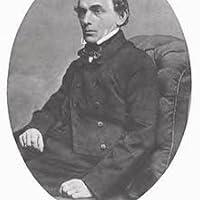
Hermann Lotze
À propos de l'auteur
Hermann Lotze was a prominent German philosopher and psychologist, known for his influential contributions to the fields of philosophy, psychology, and medicine. He was a key figure in the development of a systematic philosophy that integrated elements of metaphysics, ethics, and psychology. Lotze sought to bridge the gap between the empirical sciences and philosophical inquiry, emphasizing the importance of both in understanding human experience. His works, particularly 'Medicinische Psychologie' and 'Microcosmus', reflect his deep engagement with the complexities of the human mind and the nature of reality.
Lotze's philosophical approach was characterized by a unique blend of idealism and realism, and he was instrumental in shaping the discourse around the nature of consciousness and the relationship between mind and body. He significantly influenced the field of psychology, advocating for a scientific approach to understanding mental processes. Lotze's ideas inspired a generation of thinkers and laid the groundwork for subsequent developments in both philosophy and psychology, establishing him as a pivotal figure in the intellectual landscape of the 19th century.